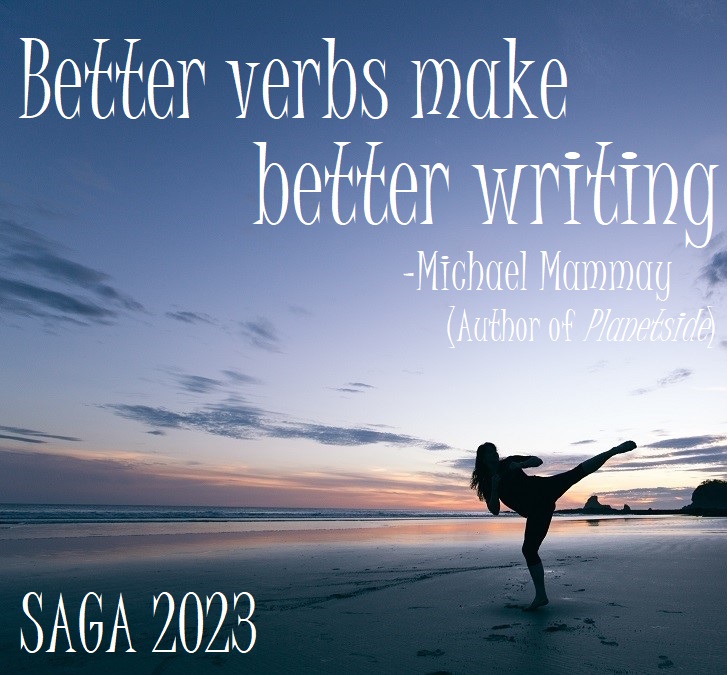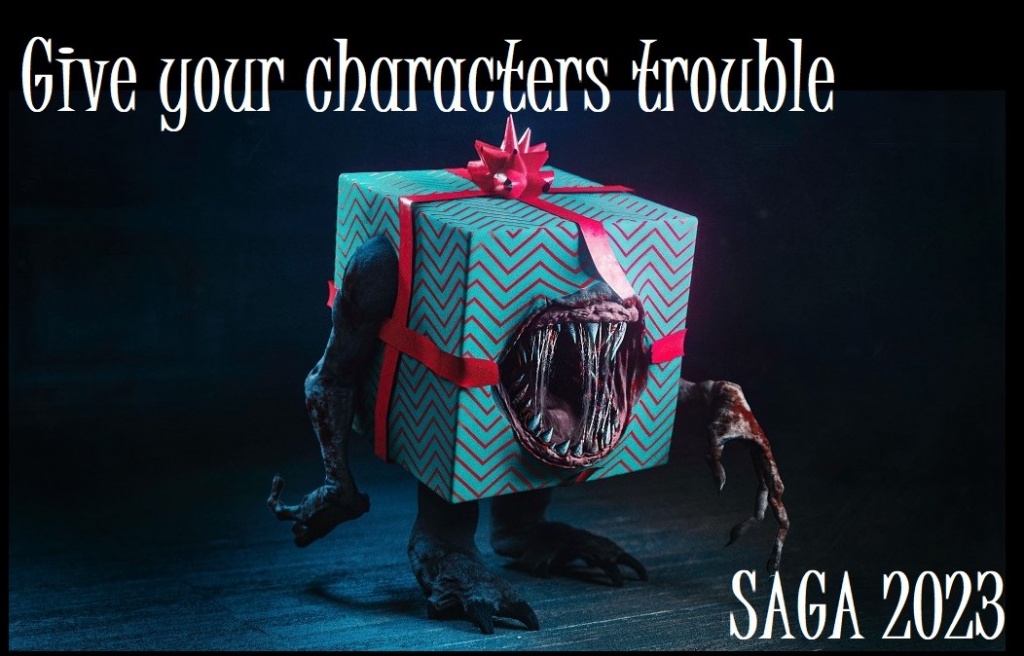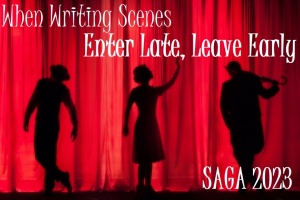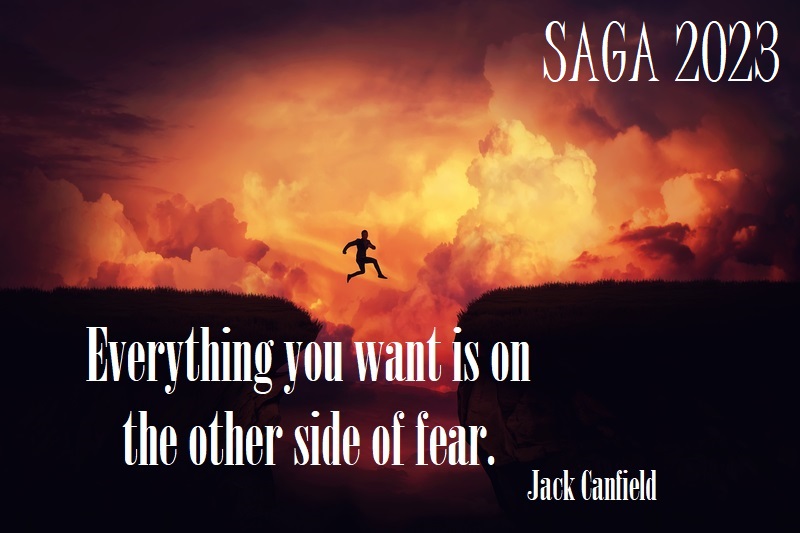
Meme created by Erin Penn
During the SAGA Professional Writer’s Conference in 2023, Gail Z. Martin quoted a motivational speaker, saying the words changed her life. I webcrawled until I found the original speaker then made a meme with the appropriate attribution. It was the first of the memes I envisioned during the conference, down to what the picture should look like.
That is always the problem with meme creation, finding the right picture. I was ecstatic when I found the fissure against the fire background. Exactly what I wanted.
Now onto why acknowledging fear is good writing advice. “You can’t write a novel.” because it will impact your social standing, or your ability to make a living, or is too hard and there is a chance of failure. Each of these arguments are based in fear. Because, really, you can write a novel.
It might not be a good novel, but if you want to write a novel, stringing together enough words is the only requirement. Making something good enough to sell is a different issue, but if you WANT to write a novel, there is no deadline, no judge, just time spent doing what you WANT to do.
Anything you WANT to do is possible. Want a new job, then job hunt. Want a vacation – maybe Cancun isn’t in the budget, but a beach vacation is within reach.
Now, you might not WANT to do the work. Writing a novel is lot of work, but don’t let anyone say you can’t when you are capable of writing.
Also remember writing is a learning process. No one masters a job in one year. A person goes through years of training in normal school, then months of specialized training, then “probation” on the job. And still it is three-to-five years before you are really, really good at it. The first novel will suck – it may be possible to polish it to good – but the first draft of the first novel is going to be bad as the first picture you ever drew. You know, the one with your mom’s arms growing out of her neck.
Still, first that first draft of that first novel.
If that is what you WANT.
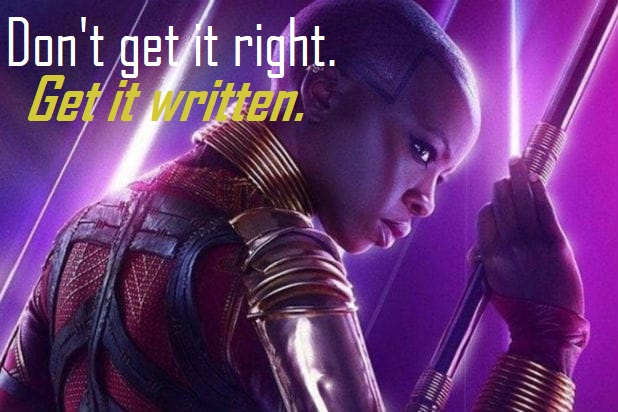
Meme created by Erin Penn
